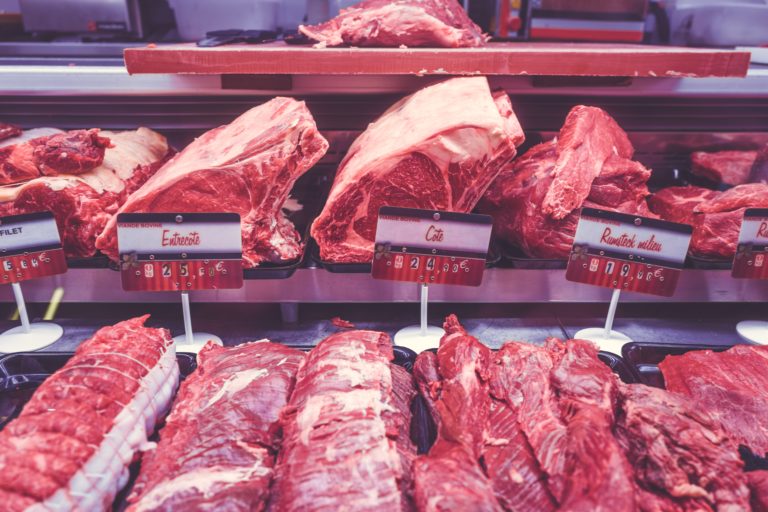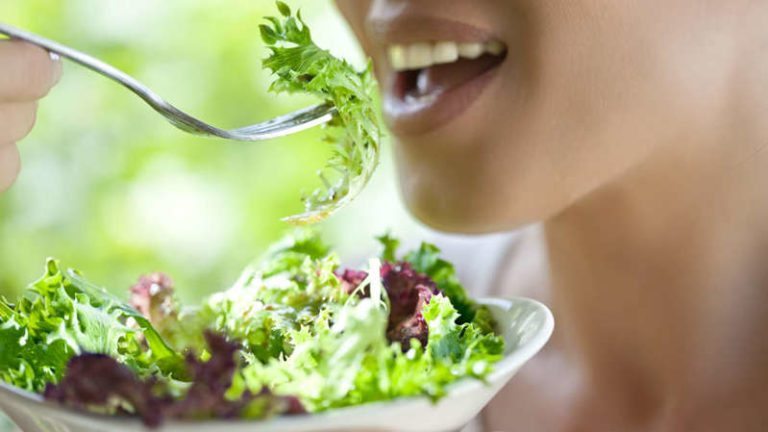Weight loss goals vary from person to person. The key to success is to be consistent no matter how hard you work to lose those last few pounds. Always keep in mind that nothing worth having comes easy and your killer body makes no exception.
We’ve gathered some facts from experts you need to know before starting your weight loss journey. Read on and good luck!
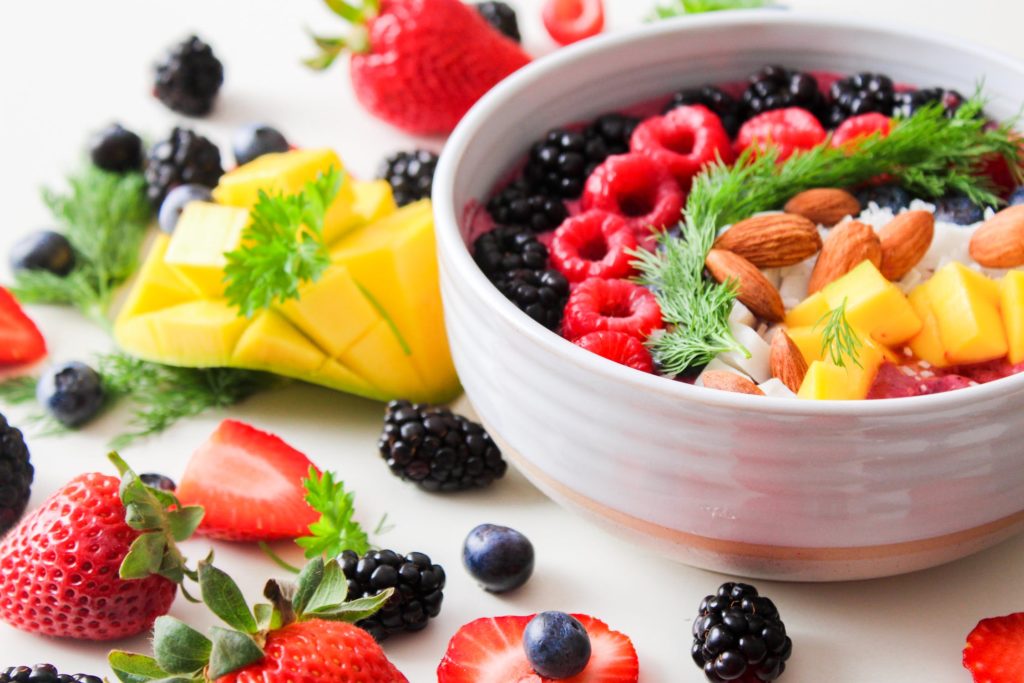
1. Even nutritious foods can make you gain weight
‘Many people think if it’s healthy, you can eat as much as you want, but it’s important to limit ‘recreational’ eating, no matter how healthy the snack.’ —Fiola Sowemimo, MD, Board-Certified in Internal and Bariatric Medicine.
2. When you eat is just as important as what you eat
‘When you eat is important for weight loss. Starving all day and eating a big meal at the end of the day is counterproductive. No matter how nutritious a meal is, if eaten too late in the day, one does not have the time to burn it off and use it for fuel for the day. It ends up being stored in a body gas tank (the fat cells) you can’t readily access.’ —Dr. Sowemimo.
3. Check your medications
‘Some common medications prescribed for chronic conditions like hypertension, diabetes, and depression are weight positive—as in, they make you gain weight or make it difficult for you to lose the excess weight you already have. If one needs to be on chronic medications, it’s best to be on weight neutral or weight negative alternatives. Talk to your doctor about your medications.’—Dr. Sowemimo.
4. Reaching your goal weight isn’t the end
‘It takes fewer calories and more energy expenditure to maintain weight loss than it takes to initiate weight loss. So if you let up once you start losing weight, you will gain it all back and then some! The good news is that when you start losing weight, it becomes easier to do more things like spending extra time on the treadmill or doing more resistance training reps. The idea is to continuously challenge yourself.’ —Dr. Sowemimo.
5. You need to get your thyroid checked, the right way
‘If you’re having a hard time losing weight, get a proper thyroid assessment. Most people need a test that goes above the standard medical thyroid profile. A standard thyroid test reads as ‘normal’ in 80 percent of overweight individuals, which is incorrect. A proper thyroid assessment includes checking eight different parameters of thyroid function and comparing them to optimal, not normal, values. Evaluated this way, over 80 percent of overweight individuals will actually be properly identified as being hypothyroid. This is a key contributor to overweight.’ —Kyrin Dunston, MD, author of Cracking the Bikini Code: 6 Secrets to Permanent Weight Loss Success.

6. Alcohol literally prevents weight loss
‘Alcohol is not only empty calories but also has a huge effect on the weight loss process. It can interrupt and inhibit fat metabolism, making it harder to lose weight. Alcoholic drinks also contain a lot of added calories and carbs that will make it harder to lose weight even when you’re reducing your caloric intake. At the very least, order something you sip slowly, such as wine, rather than something you may drink larger amounts of such as beer.’ —Gabriella Vetere, registered dietitian nutritionist, founder of Macrobalanced Nutrition.
7. Not all calories are created equal
‘Calories are not just calories. There are foods that will nourish the body, preserve and protect lean muscle mass, and foster a healthy metabolism—such as lean proteins, fresh produce, and whole grains. And there are foods that will contribute calories but very little else nutritionally—such as refined grains, processed foods, and added sugars. Having a calorie limit is a good idea, but it’s critical to meet that goal with as many healthy choices as possible.’ —Caroline Apovian, MD, Director of the Nutrition and Weight Management Center at the Boston Medical Center, professor at the Boston University School of Medicine, and vice-president of The Obesity Society.
8. You have to exercise too
‘Exercise is important for so many reasons, with metabolic health and weight loss being only one. While it is true that focusing on diet makes more a difference in terms of weight loss, the two disciplines work together to maintain a healthy body and metabolism, especially as you age. I advise my patients to strength train twice per week and work in cardio most days of the week.’ —Dr. Apovian.
9. Sleep is the missing link in weight loss
‘I refer to sleep as the third pillar of weight loss. Getting less than 7 to 9 hours of sleep per night ramps up the hunger hormone ghrelin and decreases the satiety hormone leptin. Lack of sleep also interferes with impulse control, making it less likely that you will stick to healthy food choices and portion sizes the following day. Getting less sleep than needed also heightens cortisol, which prompts the body to overeat to refuel after fighting off a stressor.’ —Dr. Apovian.
10. Muscle may weigh more, but it works in your favor
‘The amount of lean muscle mass we have is the primary determinant of metabolic rate. In other words, the more muscle mass we have, the more calories we will burn. Our muscle mass naturally begins to decline around age 30, and that process, called sarcopenia, accelerates around age 40. Lift weights and eat a protein-rich diet to preserve your muscle strength as you age.’ —Dr. Apovian.
11. It’s about progress, not perfection
‘Attitude is everything. When shedding weight, progress is more important than perfection. Small steps lead to big changes. And, if you fall off the wagon, jump back on. Each day is a new day to eat and be well.’ —Jared Koch, certified health coach and nutritional consultant, founder of CleanPlates.com.
12. It’s not a diet, it’s a lifestyle
‘I wish clients understood that losing weight is about more than the number on the scale. Following fad diets may promote quick weight loss but typically results are fleeting and may lead to even greater weight gain once you resume your usual eating patterns. To lose weight for good, you need to adopt an all-around lifestyle change that includes what you eat, how you prepare food, and how often you move your body.’ —Chanté Wiegand, ND, Naturopathic Doctor and Director of Education at The Synergy Company.
13. There is no perfect diet
‘There is no one-size-fits-all weight loss diet for everyone. Ketogenic, Paleo, low fat, vegan—the options are numerous. But you must take into account the individual’s overall health concerns in the context of their weight loss strategy. What works for one person may make someone else ill or may simply not be effective.’ —Dr. Wiegand.
14. Diet is more important than exercise
‘You cannot outrun a bad diet. So many clients think because they sweat it out in the gym they can eat whatever they want. While fitness is essential for heart health and functionality, it is important to note that 80 percent of weight loss is diet.’ —Suzanne Fisher, MS, RD, LDN Registered Dietitian and Licensed Nutritionist.
15. Stressing about losing weight makes it harder to lose weight
‘Watch your stress level. Stress elevates the hormone cortisol, and when elevated, cortisol can interfere with memory, promote weight gain, and lower immune function. Cortisol can also induce overeating and cravings, usually for high-fat, high-sugar foods. In addition, ghrelin, the hunger or appetite hormone, has been found to increase during times of extreme stress. Make sure you’re taking time to de-stress every day.’ —Fisher.
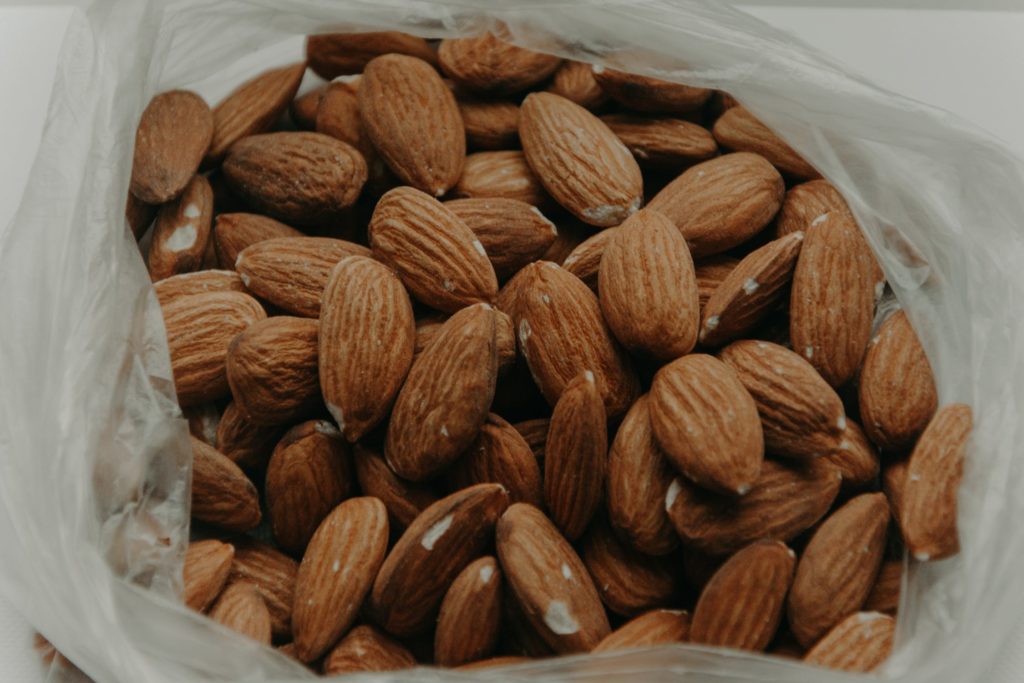
16. Snacks can cut cravings
‘Ghrelin, the hunger hormone, will increase during periods of hunger, so a mid-afternoon snack may prevent late-day overeating. Pack a snack or have some emergency rations stored in your desk to avoid temptations. I recommend nuts, seeds, fruit, yogurt, cheese sticks, air popped popcorn, and low sugar granola bars. Consuming a snack that contains protein will promote satiety and help to reduce cravings.’ —Fisher.
17. Get your hormone levels checked
‘If you’re trying everything and still not losing weight, I always recommend digging deeper into hormones. Imbalances in cortisol, thyroid and other stress hormones may be blocking success. Diet and exercise are often not enough.’ —Wiegand.
18. Your microbiome is one key to weight loss
‘Tweaking the gut microbiome—the balance of good bacteria in your digestive system—can help your body shed pounds. Certain healthy bacteria in the gut predispose you to a faster metabolism. You can actually sequence the gut microbiome and look for imbalances and then working on rebalancing.’ —Wiegand.
19. Weight loss is not a straight line
‘Losing weight is not linear. Your body weight will fluctuate as you go through different phases, especially for women at certain times of the month. From a psychological point of view, if your body weight goes up for a few days in a row, do not panic. Look at the overall trends instead.’ —Rob Jackson, Personal Trainer, founder of Minimal FIT.
20. Don’t beat yourself up for eating a treat
‘One treat will not ruin a pattern of successful clean eating. If you’ve been training hard in the gym, it might even be beneficial. Don’t beat yourself up over it, as this mindset can really knock you back. Instead, draw a line under the experience and continue with the clean eating that you were doing before the treat.’ —Jackson.

21. Weight loss is about the journey, not the destination
‘I wish people understood that weight loss and weight maintenance behaviors are two sides of the same coin. Too many people seem to want to shed pounds as quickly as possible without really trying to change their eating and lifestyle behaviors for the long term; they figure they’ll deal with the weight maintenance later on. When people say they are ‘going on’ a diet, it implies that—at some point—they’ll be ‘going off’ their diet. I always tell people that when you are changing your habits in order to lose weight, you’re just practicing for weight maintenance. I want them to focus on the behavior changes much more than their goal weight.’ —Susan Bowerman, registered dietitian and director of Worldwide Nutrition Education and Training at Herbalife.
22. You absolutely must keep a food journal
‘I wish people understood the value of keeping really accurate food diaries. I encourage my patients to not only keep a diary, but to also write down ahead of time what they plan to eat and when they plan to exercise. This encourages them to stick to the plan. I also encourage people to use the diary as a tool to record their hunger level before and after eating, as well as their mood. The feedback from a well-kept food diary is invaluable. People learn if they are eating for emotional reasons rather than hunger, and they can also see how often they eat until they are more than comfortably full.’ —Bowerman.
23. Fix underlying emotional issues without food
‘When you manage your emotions rather than stuffing them down and following them with a food chaser, you save a whole bunch of calories. Figure out what’s really eating you, so to speak, and deal with that rather than depending on a sugar bomb to soothe your soul. When you face your issues, you no longer need to stuff your face. This gives you back the control you desire.’ —Renée Jones, counselor and author of What’s Really Eating You?: Overcome the Triggers of Comfort Eating.
24. Lack of sleep will make you eat more—a lot more
‘Research published in the European Journal of Nutrition shows that people consume more net calories the day after they don’t get enough sleep—about 385 more calories. With roughly 3,500 calories in a pound, an individual could theoretically gain a pound in 10 days of they’re not getting enough sleep.’ —Joseph Ojile, MD, founder, CEO and medical director of the Clayton Sleep Institute and Chairman of the National Sleep Foundation.
25. Lack of sleep will also make you crave junk food
‘As if eating nearly 400 more calories a day wasn’t enough, research published in Sleep shows that sleep restriction amplifies and extends the blood levels of a chemical signal that ‘enhance the joy of eating, particularly the guilty pleasures gained from sweet or salty, high-fat snacks.’ This made people crave and eat more of these unhealthy snacks. Over time that can cause significant weight gain.’ —Dr. Ojile.
26. Cravings do affect some people more than others
‘Thanks to new research, we now know when people are most vulnerable to cravings (early evening) and which age groups crave more (young females crave more than older males, and younger female dieters crave more than older male dieters). Knowing your personal ‘risk factors’ can help you manage your cravings.’ —Frank Greenway, MD, chief medical officer at the Pennington Biomedical Research Center in Baton Rouge, LA.
27. Liposuction isn’t a weight loss shortcut
‘One of the biggest misconceptions about weight loss some of my patients have is the belief that cosmetic plastic surgery, especially liposuction, is a way to lose weight. Liposuction may remove up to a few pounds from the midsection during surgery, but it is a sculpturing tool, not a weight loss tool. If a patient is overweight, I actually ask them to lose weight by other means first before I will perform liposuction.’ —Joshua D. Zuckerman, MD, FACS, a New York City board-certified plastic surgeon.
28. You’re not fat just because you love food
‘Shedding pounds shouldn’t be your focus. Your main focus should be figuring out what caused the weight gain in the first place. Without knowing that, you’ll likely see the weight creep back on because the underlying issue hasn’t been solved. The issue(s) could be anything from hormone imbalances to cravings, but in most cases, it is solvable.’ —Leah de Souza-Thomas, MPH, epidemiologist and founder of The Thrive Practice.
29. You’re not a slave to your cravings
‘The average food craving lasts for about 15 minutes, so if you’re craving something that isn’t the best fit for you that day, distract yourself for 15 minutes. Chances are good that the craving will pass, and even if it doesn’t, you will likely have more insight into why you’re having that particular craving.’ —Kelly Morrow-Baez, PhD, licensed professional counselor and private weight loss coach.
30. Eating fat will not make you fat
‘Many clients come to me and are terrified of eating avocados, nuts, hummus, and other healthy fats as they claim that the foods are ‘too fattening and caloric.’ I explain that fat is digested slower than carbs and protein and will also help promote satiety. Full-fat dairy products, nuts, and plant-based fats promote weight loss, not inhibit it.’ —Eliza Savage, MS, certified dietitian nutritionist at Middleberg Nutrition in NYC.

31. Allergy meds can cause weight gain
‘Some common over-the-counter medications can hurt weight loss. I advise people trying to lose weight to use antihistamines sparingly. Try spot-treating the symptoms instead. If you have nasal symptoms, consider only nasal sprays rather than a pill.’ —Chandler Park, MD, founder of CancerVisit.com at the University of Kentucky College of Medicine.
32. Fast weight loss isn’t fat loss
‘Fast weight loss, such as 10 pounds in two weeks, that results from extreme food restriction, juice cleanses, or cutting out carbohydrates completely is mostly due to loss of water weight and muscle mass, and can be very unhealthy. This weight loss is not sustainable and is usually regained back fast and results in a cycle of yo-yo dieting, which messes up your metabolism. The actual pounds you want to lose and keep off—pounds of fat—require a meal plan that includes all food groups and is not overly restrictive so that you can fuel your body to burn fat efficiently.’ —Rachel Goodman, RD, CDN owner of Rachel Good Nutrition.
33. Your tech is making you overeat
‘People have become completely disconnected from what satiety is and what it should feel like. We eat in the car, while working, while on our phones, or while watching television—we have become mechanical eaters. Mindful eating is a fundamental part of losing weight and keeping it off. You should eat when your body is asking you for fuel and stop eating when you your full. Keeping away from distractions can help learn this behavior.’ —Gisela Bouvier, registered and licensed dietitian nutritionist.
34. Skipping meals doesn’t help
‘I wish people would know that skipping meals, especially skipping breakfast, is not the answer. Many people think if they just cut calories by not eating certain meals they will lose weight, but it actually does not help them lose weight and instead sets them up to overeat later and/or to make unhealthy choices later.’ —Rachel Goldman, PhD, clinical psychologist in NYC specializing in health and wellness and Assistant Clinical Professor of Psychiatry at NYU School of Medicine.
35. You eat too fast
‘People need to slow down when they eat! Most people eat too fast and when we eat too fast, we overeat. By simply slowing down the meal—try putting your utensil down between bites, or eating with your non-dominant hand—your stomach and brain will have time to connect. When you slow down your eating, you will be able to eat less food and feel full faster.’ —Dr. Goldman.




